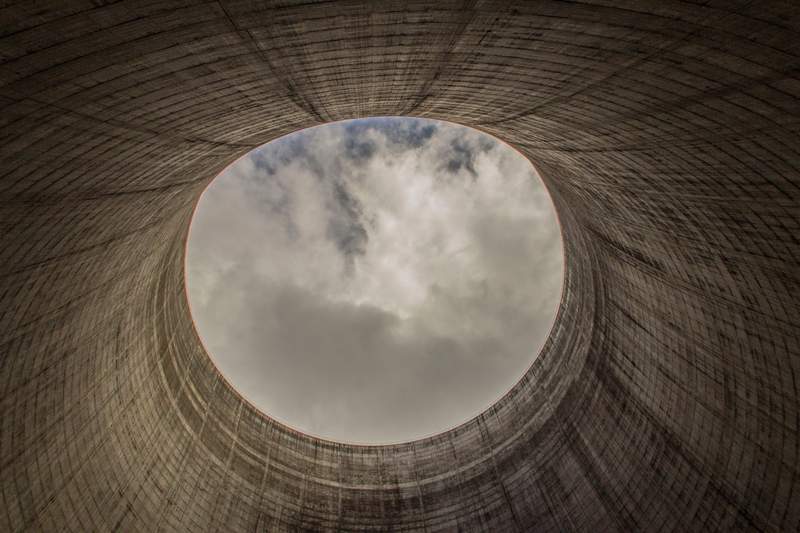Cooling towers are mainly used to cool and retain water for industrial use. While the quality of a cooling tower’s construction largely determines its durability and capacity to store water, other factors, such as its regular maintenance, will go a long way in increasing its overall efficiency.

The benefits that come with having a fully-functional cooling tower are diverse, but two highly important ones are that it reduces energy costs, as well as the amount of time and chemicals needed to treat the water inside the cooling tower.
Five easy and efficient tips for maintaining your cooling tower
1. Check the airflow
The flow of air (and water) in a cooling tower is crucial to its efficiency. Therefore, you should always ensure that air circulation is smooth and unhindered.
Several factors—for example, hot air, damaged fan blades, and, especially, coagulation of sediments—can disrupt the flow of air in a cooling tower. Sediments are a more formidable defect because they usually serve as a breeding ground for germs.
To ensure that air always flows properly in your cooling tower, inspect the towers for faults and impurities regularly. You can also treat them with biocides to discourage bacterial and algal growth.
2. Inspect the water pumps
The pumps within cooling towers are responsible for keeping the reserved water cool. They are especially useful during summer, when the weather is usually boiling hot, and must always operate at optimal efficiency.
A well-maintained pump not only increases the durability of your cooling tower from Top Cooling Tower company in North America, but it also helps you save some money on energy costs, which can then be used for other repairs and maintenance.
To improve the overall energy efficiency of your pumps, ensure that you lubricate them routinely.
3. Treat the water
The whole point of maintaining your cooling tower is to ensure that its components are always in good condition—and water so happens to be one of its essential components. As such, the quality of the water stored in your cooling towers must always be high.
Contaminated water should be avoided at all costs; not only because it’s the root of many diseases, but also because it can cause your HVAC (Heating, Ventilation, and Air Conditioning) system to break down.
So, to keep your water safe and your systems fully functional, invest in effective and periodic water treatment.
4. Remove scale deposits
Owing to the evaporation process, you’ll occasionally find a buildup of scale deposits in your water and water tank. When ignored, these mineral deposits can decrease the efficiency of your HVAC system.
Therefore, ensure that you descale your system regularly, as this will increase the durability of your system and save you some cash on your monthly utility bills.
5. Clean the tubes
Certain contaminants, such as mud, slime, and algae, can gradually accumulate within the tubes that make up your industrial HVAC system.
This can clog the tubes’ passages, making it difficult for water to flow in the pipes. What’s more, failing to treat the clogged tubes can result in a total system breakdown.
To prevent this from happening, clean your tubes regularly to rid them of deposits and other contaminants. Though you might want to hire professional help for this task as it can often be difficult for someone who lacks the technical know-how.

